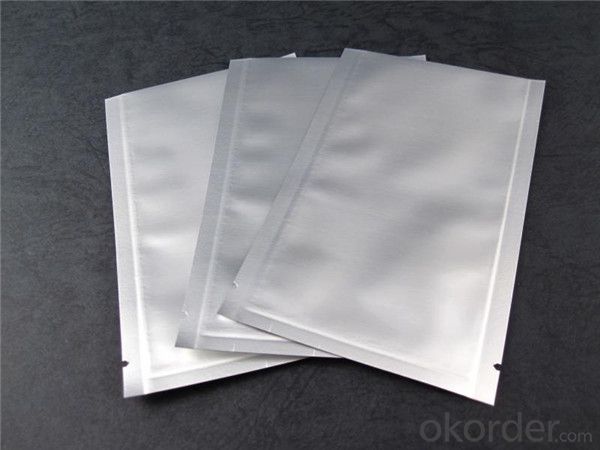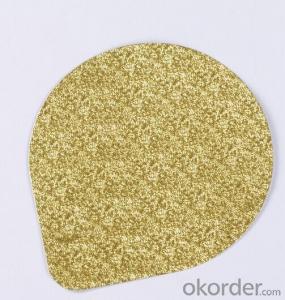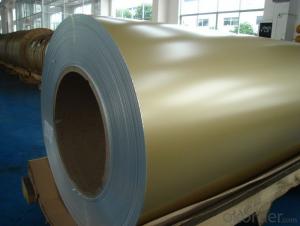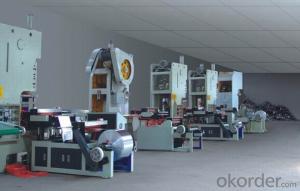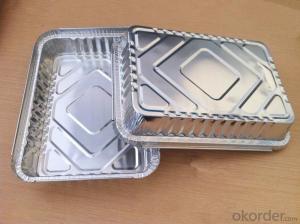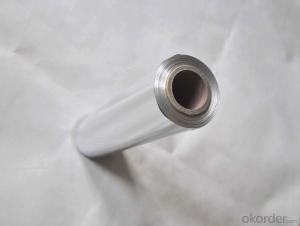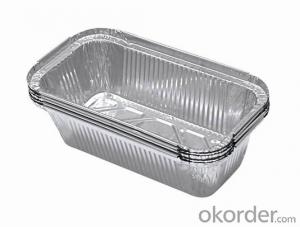6 White Aluminum Coil Lidded Aluminum Foil Lid for K Cup Coffee Container
- Loading Port:
- Shanghai
- Payment Terms:
- TT OR LC
- Min Order Qty:
- 5 m.t.
- Supply Capability:
- 30000 m.t./month
OKorder Service Pledge
OKorder Financial Service
You Might Also Like
Packaging & Delivery
Packaging Details: | Standard export packing or following customer's demand |
Delivery Detail: | Within 10-20days or according to the order quantity |
High Quality and Factory Price Aluminum Coil
Specifications
Grade
| 1000 Series: 1050 1060 1070 1100 1200 1235 etc. 3000 Series: 3003 3004 3005 3104 3105 3A21 etc. 5000 Series: 5005 5052 5083 5086 5154 5182 5251 5754 etc. 6000 Series: 6061 6063 6082 6A02 etc. 8000 Series: 8006 8011 8079 etc. |
Thickness | 0.05~10mm |
Width | <1600mm< span=""> |
Color | Metallic, Solid, RAL or by customer requirements |
Coating paint: | PVDF(Polyvinylidene Fluoride), PE(Polyester ) |
Coating thickness | as per customer’s request |
Gloss | 10-90%(EN ISO-2813:1994) |
Total coating thick | Polyester18~27micron(EN ISO-2360:1995) PVDF27 ~35micron(EN ISO-2360:1995) |
Coating hardness | 2H |
Protective film | PVC film, Colorless transparent or White-black |
Adhesion | 5B (EN ISO-2409:1994) |
Impact resistance | No cracking and peeling (A.S.T.M D2794-1993) |
Flexibility (T-bend) | 0T- 2T |
Temper | H16, H18, H24, H26, H26 |
Certification | ISO9001:2000, CE, SGS |
Coil's standard diameter | 1100mm |
Inner Diameter | 405mm/505mm |
Coil's standard weight | 2000kgs |
Payment | L/C ,T/T |
Specifications | Width: 30cm,38cm,45cm, OEM; Length: 3m-20m, OEM; Thickness: 10mic-20mic(10mic=10um=0.01mm), OEM; Sizes can be customized according to your requirement; |
| Application |
Supermarkets, catering, hotel, airline, restaurants, household, medical,electronic,chocolate wrapping etc;
|
| Characteristic | 1. Use: suitable for the food packing, barbecue; 2. Color: for food only do sliver color; 3. Inner packing : paper roll core; 4. Box with metal cutter; 5. Surface packing: Color box; |
| NOTES | Our factory can quote to you at the specifications that what you want any time. To undertake all kinds of plastic processing operations. Any sizes and packing can be ordered. Good service and reasonable price.
|
FAQ
1. How can I get some samples?
We are honored to offer you samples. New clients are expected to pay for the courier cost. The samples are free for you.
2 Do you have any certificates?
Our products passed inspection of SGS, FDA, and CE Quality is priority! Every worker keeps the QC from the very beginning to the very end, Quality control department especially responsible for quality checking in each process.
3 Can your factory print or emboss my logo on the goods?
Yes, we can print or emboss the logo on the goods or their packing box.
4 What information should I let you know if I want to get a quotation?
1) The specification of products (length x width x thickness);
2) The temper and alloy.
3) The final product you will use to be made
4 It will be better if you can show us the pictures or design sketch. Samples will be best for clarifying. If not, we will recommend relevant products with details for reference.We usually produce goods based on customers
Samples or based on customers’ picture, logo, sizes etc.
Our Services
1. Reasonable production arrangement to make delivery very fast;
2. We are able to provide leading tolerances, metallurgical assistance, quick and reliable delivery, samples for new products, etc.
3. We have the strong capability to meet your particular requirement for the products.
4.To guarantee the quality of the products we can meet most of the standards all over the world.
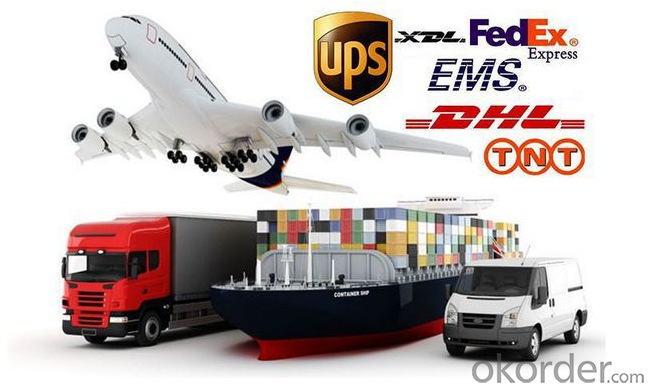
Photos
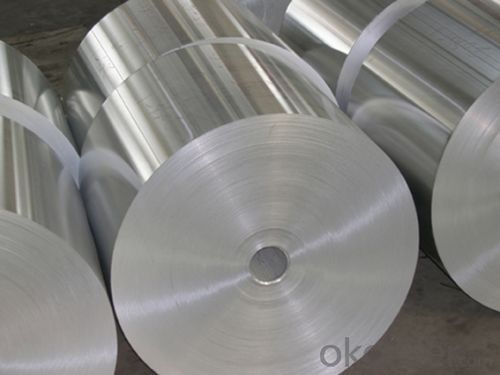
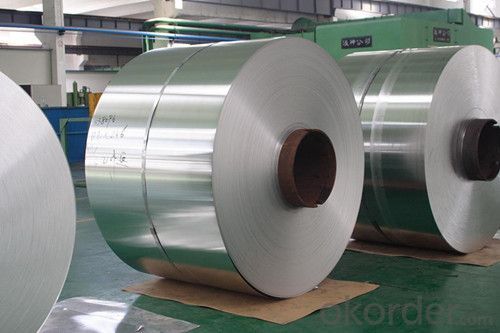
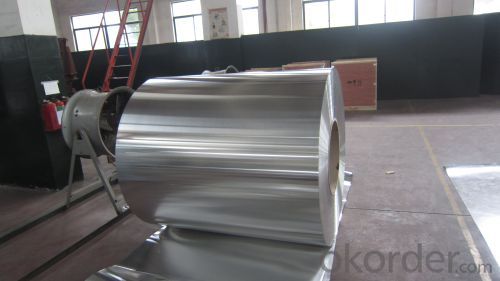
- Q: Can aluminum coils be used in food processing applications?
- Food processing applications can utilize aluminum coils, as they offer a range of advantages. Aluminum is a widely used and highly adaptable material in the food industry due to its various benefits. Aluminum coils are lightweight, durable, and possess excellent thermal conductivity, which makes them suitable for applications requiring efficient and uniform heat transfer. When it comes to food processing, aluminum coils are commonly employed in equipment such as heat exchangers, evaporators, and refrigeration units. These coils help to cool, heat, or maintain the temperature of different food products during their processing, storage, or transportation. The exceptional thermal conductivity of aluminum ensures that heat is evenly dispersed, thereby aiding in the preservation of food quality and flavor. Furthermore, aluminum is a non-toxic and non-reactive metal, meaning it has no adverse effects on the taste or composition of the processed food. It is also naturally resistant to corrosion, ensuring that the coils do not contaminate the food and can be easily cleaned and maintained. In addition, aluminum is an environmentally friendly and recyclable material, aligning with the increasing demand for sustainable practices in the food industry. Its lightweight nature also contributes to energy efficiency and reduced transportation expenses. In conclusion, aluminum coils are a reliable, efficient, and safe choice for food processing applications. They meet the strict requirements of the industry while ensuring the quality and safety of the processed food.
- Q: Can aluminum coils be used in roofing applications?
- Yes, aluminum coils can be used in roofing applications. Aluminum is a popular choice for roofing due to its lightweight nature, corrosion resistance, and durability. It is commonly used for residential and commercial roofing projects.
- Q: Are there any health or safety concerns related to aluminum coils?
- Aluminum coils have the potential to present health and safety risks, particularly in certain situations. One concern is the possibility of aluminum particles or fumes being released into the air, especially during the manufacturing or processing of the coils. Inhaling these particles or fumes could result in respiratory problems or lung damage. Moreover, damaged or corroded aluminum coils might release aluminum ions into food or drinks, which could be harmful if consumed excessively. Nonetheless, it is worth noting that the risks associated with aluminum coils are generally minimal and can be reduced through proper handling and upkeep. Manufacturers typically implement various safety measures to prevent the release of aluminum particles or fumes during production. Additionally, aluminum coils used in heating, ventilation, and air conditioning systems are usually coated or treated to prevent corrosion and the subsequent leaching of aluminum ions. To minimize any potential health risks, it is advisable to adhere to safety guidelines provided by manufacturers. This may involve wearing appropriate protective gear when handling aluminum coils and ensuring adequate ventilation in areas where they are processed or installed. Regular inspection, cleaning, and maintenance of the coils can also help identify and resolve any potential issues before they become a matter of health or safety. In conclusion, although there are concerns regarding the health and safety implications of aluminum coils, these risks can be managed through proper handling, maintenance, and adherence to safety guidelines. Seeking advice and recommendations from professionals or manufacturers regarding the utilization and upkeep of aluminum coils is always recommended to ensure maximum safety.
- Q: Can aluminum coils be used for automotive heat shields?
- Yes, aluminum coils can be used for automotive heat shields. Aluminum is a commonly used material for heat shields due to its excellent thermal conductivity and high melting point. It is lightweight and has good corrosion resistance, making it ideal for automotive applications. Aluminum coils can be easily formed into the desired shape and provide effective heat insulation, protecting sensitive components from excessive heat generated by the engine or exhaust system. Additionally, aluminum is cost-effective and readily available, making it a popular choice for automotive heat shields.
- Q: What are the acoustic properties of buildings using aluminum coils?
- Various factors can influence the acoustic properties of buildings that utilize aluminum coils. These coils are commonly employed in the construction industry for purposes such as roofing, cladding, and insulation. In terms of acoustics, these properties can have both positive and negative effects on sound transmission within a building. One of the main advantages of using aluminum coils from an acoustic standpoint is their ability to act as a barrier that reflects sound waves. When installed correctly, they can help prevent sound from penetrating walls or ceilings, resulting in a reduction of external noise sources. This can be especially beneficial in areas with significant noise pollution, such as urban environments or locations near busy roads. Additionally, aluminum coils can contribute to the overall sound insulation of a building. Due to their material properties, they can provide a certain level of soundproofing, particularly when combined with other insulation materials. This can create a comfortable and quiet indoor environment, which can lead to improved concentration, productivity, and overall well-being for occupants. However, it is important to note that the acoustic properties of buildings using aluminum coils may also have limitations. Aluminum is a lightweight material compared to alternatives like concrete or brick, meaning it may not offer as much mass to block sound transmission. Therefore, in situations where high sound insulation is necessary, additional measures such as double glazing, acoustic seals, or thicker wall constructions may be required. Furthermore, the use of aluminum coils can also impact the sound reverberation within a space. Their smooth and reflective surface can cause sound waves to bounce off, resulting in increased echo and reverberation time. This can have a negative effect on speech intelligibility and acoustic comfort, particularly in larger open-plan areas or rooms with high ceilings. Overall, while aluminum coils can provide certain acoustic benefits such as sound reflection and insulation, it is crucial to consider the specific requirements of each building project. Consulting with acoustic engineers or professionals can help ensure that appropriate measures are taken to optimize the acoustic properties of buildings utilizing aluminum coils and address any potential limitations.
- Q: Can aluminum coils be used in architectural applications?
- Yes, aluminum coils can be used in architectural applications. Aluminum is a versatile and durable material that is commonly used in the construction industry for its lightweight nature, corrosion resistance, and ease of fabrication. Aluminum coils are often utilized in architectural applications such as roofing, cladding, and facades due to their ability to be easily formed into various shapes and sizes. Additionally, aluminum coils can be coated with different finishes to enhance their aesthetics and provide additional protection against weathering and fading. Overall, aluminum coils are a popular choice for architectural applications as they offer a combination of functionality, aesthetics, and longevity.
- Q: This question asks for methods to protect aluminum coils from damage during storage and transportation.
- <p>To prevent damage to your aluminum coil during storage or transportation, follow these guidelines: Store the coils in a dry and clean environment to prevent moisture and dirt accumulation. Ensure that the storage area is well-ventilated to avoid condensation. Use appropriate padding or separators between coils to prevent scratching or denting. Handle the coils with care, using proper lifting equipment to avoid dropping or mishandling. Secure the coils during transportation to prevent movement that could lead to damage. Keep the coils away from corrosive substances and extreme temperatures. Regularly inspect the coils for any signs of damage and address any issues promptly.</p>
- Q: What are the common joining techniques used for aluminum coils?
- The common joining techniques used for aluminum coils include welding, adhesive bonding, mechanical fastening, and soldering. Welding is a widely used joining technique for aluminum coils. Different welding methods, such as gas tungsten arc welding (GTAW or TIG), gas metal arc welding (GMAW or MIG), and laser welding, can be employed to fuse the aluminum coils together. Welding provides a strong and durable joint, ensuring structural integrity. Adhesive bonding is another technique used for joining aluminum coils. It involves the application of a suitable adhesive or bonding agent to join the coils together. Adhesive bonding offers excellent flexibility, as it can join dissimilar materials and create a smooth, aesthetically pleasing surface. Moreover, it distributes stress evenly across the joint, reducing the risk of fatigue failure. Mechanical fastening involves the use of mechanical elements like bolts, screws, rivets, or clips to join the aluminum coils together. This method is relatively simple and cost-effective, allowing for easy disassembly if needed. Mechanical fasteners provide good strength and stability but may require periodic maintenance to prevent loosening over time. Soldering is a technique that uses a low-temperature alloy to join aluminum coils. It involves heating the solder to its melting point and allowing it to flow into the joint, creating a strong bond. Soldering is commonly used for electrical connections or delicate applications where excessive heat can damage the aluminum. However, it may not provide the same strength as welding or mechanical fastening. The choice of joining technique for aluminum coils depends on various factors, including the specific application requirements, desired strength, appearance, and cost considerations.
- Q: What is the typical lead time for ordering aluminum coils?
- The typical lead time for ordering aluminum coils can vary depending on the supplier and specific requirements, but it usually ranges from a few days to a few weeks.
- Q: What are the common industry standards for aluminum coil specifications?
- The common industry standards for aluminum coil specifications include the Aluminum Association (AA) standards, ASTM International specifications, and the European Standards (EN) for aluminum coils. These standards typically cover dimensions, tolerances, mechanical properties, chemical composition, surface finish, and other technical requirements for aluminum coils used in various industries such as construction, automotive, aerospace, and electrical. Compliance with these standards ensures consistent quality and compatibility with industry applications.
Send your message to us
6 White Aluminum Coil Lidded Aluminum Foil Lid for K Cup Coffee Container
- Loading Port:
- Shanghai
- Payment Terms:
- TT OR LC
- Min Order Qty:
- 5 m.t.
- Supply Capability:
- 30000 m.t./month
OKorder Service Pledge
OKorder Financial Service
Similar products
Hot products
Hot Searches
Related keywords





